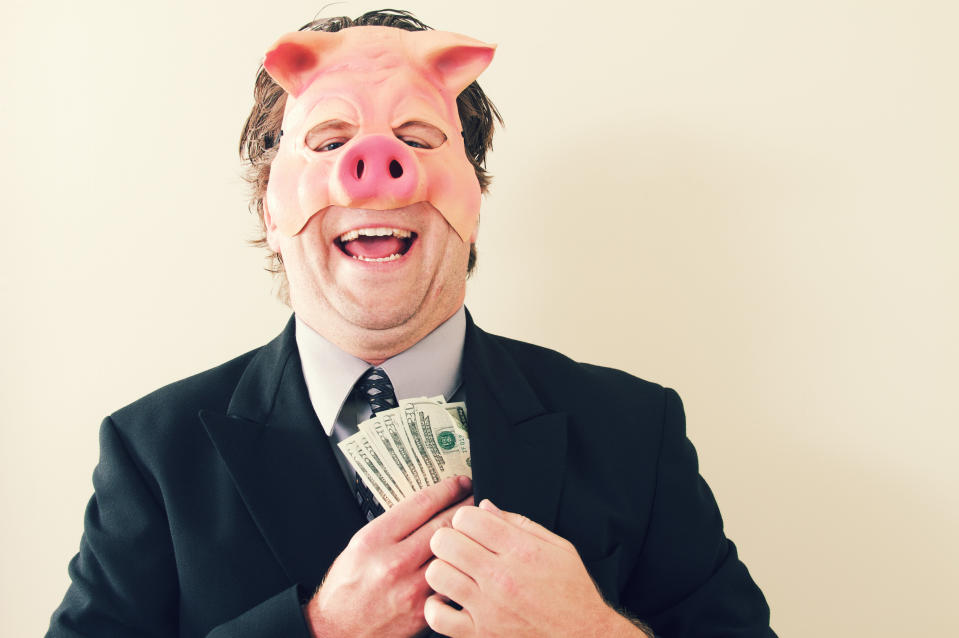CEOs aren't spending to buy back their company's stock so they can get richer: Goldman
Leave it to one of the most powerful investment banks on the planet to try and debunk the long-held belief among politicians that wealthy CEOs are trying to get richer by buying back their company’s stock.
Executives whose compensation depends on the performance of earnings per share didn’t allocate a greater proportion of 2018 total cash spending to stock buybacks than companies where management pay is not linked to earnings per share, according to new research by Goldman Sachs.
Of the 247 companies in the S&P 500 with incentive compensation plans linked to EPS, Goldman found they spent a smaller share (28%) of their total cash outlays on buybacks versus the 253 firms without performance tied to EPS (32%). The 49% of S&P 500 companies with EPS-linked compensation accounted for just 44% of total 2018 stock buybacks of $360 billion.
“One of the greatest misconceptions in the public discourse surrounding corporate buybacks is the belief that managements only repurchase stock in an attempt to inflate EPS and meet incentive compensation targets. However, the facts do not support this story,” contends Goldman Sachs strategist David Kostin.

Goldman’s snazzy data will likely do little to temper building outrage in Washington D.C. that big companies used the cash influx from the Trump tax cuts to buy back stock. Doing so has the effect of reducing the share count of a company, lifting earnings per share, and depending on the company — lifting yearend bonuses for management teams.
S&P 500 earnings grew by a heady 23% in 2018 as companies dumped about $1 trillion into stock buybacks.
Proposed stock-buyback legislation
Senators Chuck Schumer and Bernie Sanders recently proposed legislation in a New York Times op-ed that would put a dent in the stock buyback bonanza that has raged on for years on Wall Street. The dynamic duo’s proposal would prevent companies from buying back their own stock unless they first pay workers at least $15 an hour and offer paid-time off and health benefits.
The legislation is unlikely to pass because after all, we are in a capitalistic society. But hey, everyone has to get their face-time ahead of the 2020 presidential election.
Corporate America will probably do its part to continue to fan the flames on buybacks, nonetheless. Bank of America, Johnson Controls and Home Depot are just some of the household names that have unwrapped large new buybacks plans in recent months. Tech giant Apple is smack in the middle of executing on its $100 billion stock buyback plan unveiled in 2018.
Goldman estimates S&P 500 stock buyback spending will rise 15% to $940 billion this year.
Brian Sozzi is an editor-at-large at Yahoo Finance. Follow him on Twitter @BrianSozzi
Read more:

 Yahoo Finance
Yahoo Finance 